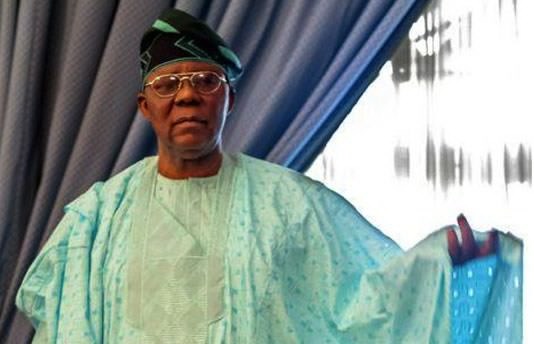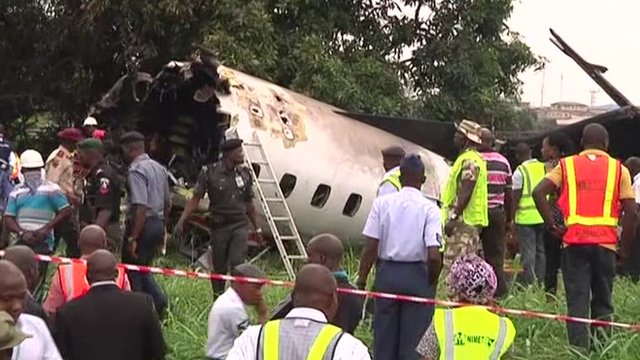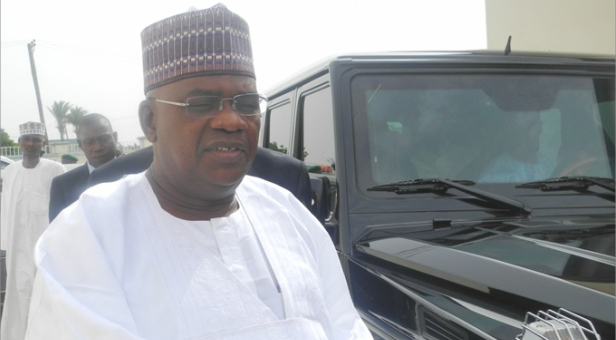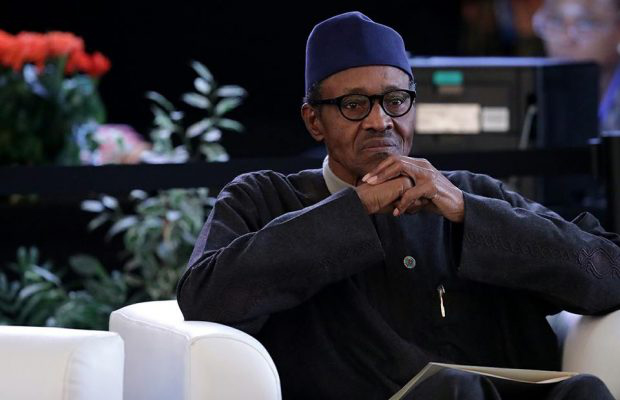Babalola Borishade, a first-class product of University of Ife, now Obafemi Awolowo University, was former minister of education, ex-minister of aviation, one time minister of state, power and steel and minister of culture and tourism.
He held the key positions between 1999 and 2007 when former President Olusegun Obasanjo was in power.
Borishade helped in stabilising Obasanjo’s government. A no small personality in the game of politics, he had also contributed to the victory of the late Shehu Yar’Adua and M. K. O. Abiola.
Borishade left behind his accomplishments on Wednesday evening in a London hospital where he was transferred to from Reddington Hospital in Lagos.
Advertisement
THE SENATE REJECTED HIM THRICE
One remarkable era in his political history was his face off with the senate. In 2003, he was one of the coordinators of the Obasanjo/Atiku campaign organisation. When the election was over, Obasanjo included his name in the ministerial list he transmitted to the senate for confirmation. The then legislative chamber was under the Peoples Democratic Party (PDP), which was in power, and one would have expected it to be an easy ride for the deceased, but the lawmakers reasoned differently.
They rejected him on three different occasions. Senators were supposedly miffed by claims that Borishade who had earlier served as minister of education was disrespectful of them.
Advertisement
The level of Borishade’s rejection was such that even during the voting, Jubril Aminu, Iya Abubakar and Daniel Saror, three former vice-chancellors who were senators, all voted against him.
One of the “sins” of Borishade, according to the senate, was his refusal to upgrade Alvan Ikoku College of Education, Owerri, to a federal institution despite a directive by Obasanjo.
In the end, the former president lobbied the lawmakers and Borishade was confirmed.
AIR TRAGEDIES AND HIS SACK
Advertisement
Perhaps the most challenging period of the deceased’s political career was during his tenure as aviation minister. At least three air mishaps were recorded within a year. When two of the crashes occurred in a spate of two months, the senate passed a unanimous, non-binding resolution calling for his sack, but Obasanjo failed to act.
Despite the inaction of the former president, stakeholders mounted pressure on him to step down. During a presidential forum on aviation in 2005, the minister said he would not hesitate to quit if that would end the air tragedies.
Less than seven months after making that statement, another air crash occurred and Obasanjo had to bow to pressure by relieving Borishade of his duty.
In all, a total of 320 people lost their lives in that dark period. A timeline of the sad events.
Advertisement
- On October 22, 2005, a Boeing 737-200 belonging to Bellview airlines crashed soon after takeoff from Lagos, killing all 117 people aboard.
- On December 10, a McDonnell Douglas DC-9 operated by Sosoliso Airlines crashed while approaching Port Harcourt, killing 107 people, most of them children going home for Christmas vacation.
- On October 29, 2006, an ADC Airlines Boeing 737-200 that departed Lagos on a scheduled domestic flight to Sokoto, with an intermediate stop at Abuja crashed, killing 96 of the 105 passengers and crew dead. Ibrahim Maccido, former sultan of Sokoto, died in the crash.
NOT JUST GLOOM FOR BORISHADE
Borishade’s stay in the aviation ministry was not just about air crashes. Under him, Nigeria scored 93 percent in the
International Civil Aviation Organisation (ICAO) universal audit, making it a benchmark to African aviation industry initiation.
He also shone outside aviation. In recognition of his contributions to the nation’s education sector, he was elected the vice- chairman of the E9 Group of the United Nations, president of the UNESCO international conference on Education, as well as chairman, Education for All (EFA) Forum of African ministers of education.
Advertisement
In a bid ensure sustained gas development and availability for power production to meet Nigerian electricity demands, he initiated the ‘Gas to Power Project (G2P), a World Bank sponsored project.
HIS ROLE IN ATIKU’S PRESIDENTIAL CAMPAIGN
Advertisement
In 2014, former Vice-President Atiku Abubakar who took another shot at the highest office in the land, having lost in the past, appointed the deceased as director-general of his campaign. As a presidential aspirant of the All Progressives Congress (APC), Atiku knew he had a tough opponent in President Muhammadu Buhari.
He was sure that he needed a revered strategist, so he picked an acclaimed political juggernaut who understood the intrigues of Nigerian politics, but the strategies Borishade used for Obasanjo and Atiku 11 years earlier could not work during that period.
Advertisement
The deceased had boasted that Atiku would defeat Buhari in the APC primary, with wide margin. He had told journalists that the Atiku campaign team had 65-70 percent chances of winning.
“I got my last briefing about an hour ago and the beauty of it is that our momentum is growing, there is no state we are in control before now that has been taken away from us but we have been encroaching into states that we were not in control before”, he had said.
GROUSE WITH JONATHAN
In the buildup to the 2015 election, Borishade fired shots at ex-President Goodluck Jonathan. Since Jonathan was a major contender in the election, it was not clear if Borishade attacked the immediate past president to pave way for his own candidate.
He accused Jonathan of indulging in “politics of clientelism”, claiming that the ex-president awarded contracts and gave appointments only to cronies “to the detriment of accountability and full democratic participation”.
“A deductive observer will not fail to notice that the nation has been gravitating from the presidential system of governance stipulated in our constitution to presidentialism,” he had said.
“This means the systematic concentration of political power in the hands of one individual or a cabal. As a result, effective accountability and representation through popular democratic participation is giving way to personal rule and single party dictatorships rooted on politics of clientelism.
“Clientelism refers to the awarding of personal favours among patrimonial cronies. These favours take the form of public sector jobs, appointments, distribution of resources through licences, contracts and tax waivers. In return, the cronies mobilize political support and loyalty for their patrons.”
HIS BATTLE WITH EFCC
In 2009, the Economic and Financial Crimes Commission (EFCC) arraigned him on a 15-count charge of bribery and forgery. Alleged to have mismanaged a N5.2 billion aviation safe tower contract, the anti-graft agency arraigned him alongside Timothy Dairo, his former personal assistant.
Rowland Iyayi, a former managing director of the Nigeria Airspace Management Agency, and George Eider, an Australian, were also accused to have been involved in the deal which was regarded as illegitimate.
He appeared in court for many years over the issue but was never convicted.
The deceased, who is a recipient of the Commander of the Order of the Federal Republic (CFR) award, was born in Usi- Ekiti, Ekiti state, on March 7, 1946.
Add a comment











